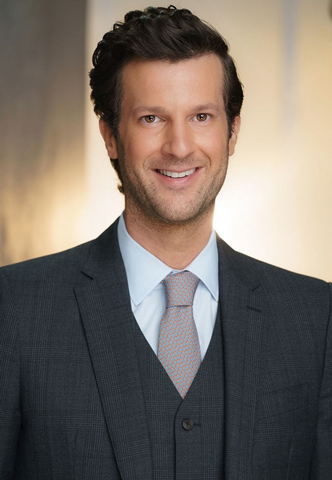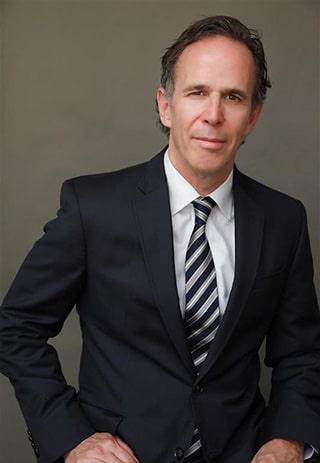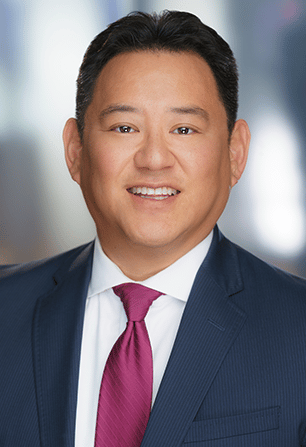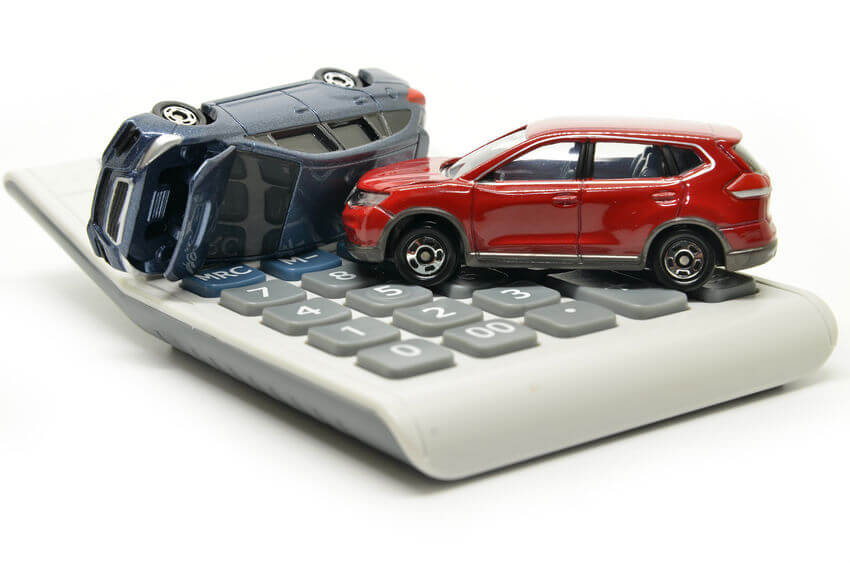
California Car Insurance Coverage
Understanding car insurance coverage is crucial to getting the type and amount of coverage you need at a price that’s fair. However, all of the legal jargon contained in insurance documents can make them seem more intimidating than they really are. We’ve put together this guide that demystifies the complicated terminology and provides a point by point description of each of the various types of car insurance coverage, so you can make an informed decision.
Liability Insurance
If you cause an accident, liability insurance covers any property damage as well as medical expenses sustained by the other party or parties. You could go with liability insurance that just meets California’s requirements – $15/30k for injuries, $5,000 for property damage – but it is highly advised that you get better insurance for extra protection. You wouldn’t want to run the risk of having to pay a large amount of money out of your own pocket because your policy limit has been exceeded.
Collision Coverage
This type of coverage pays for your car repairs after a covered accident. If your car is totaled, this will cover the total blue book value of your car. Generally, you should get this type of coverage if you own a more expensive vehicle or one that is relatively new. It may not be worth it if you have an older, less valuable car.
Comprehensive Coverage
For typical traffic accident scenarios, there’s liability insurance and collision coverage. For everything else – hail breaks your windshield, you hit a deer, someone steals your car – there’s comprehensive coverage. Like collision coverage, this is excellent to have if you have an expensive or relatively new vehicle, and if it fits in your budget. Note: If you have a lienholder, this coverage is required.
Uninsured/Underinsured Motorist Protection (UM/UIM)
This covers you if you are in an accident with a driver who does not have any liability insurance, or is underinsured. It also covers you in case of a hit-and-run accident. Since UM/UIM is relatively cheap to add to your policy, you should definitely consider it.
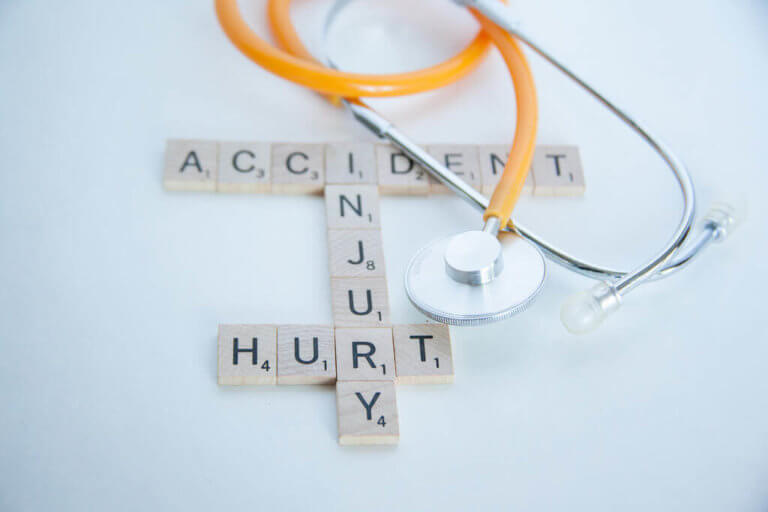
What Those Confusing Car Insurance Terms Really Mean
The car insurance industry is worth billions of dollars. There are tons of insurance companies and policies available on the market. Navigating the market can be confusing, especially when there are so many technical terms and lingo to dig through. We asked our car accident attorneys and the insurance experts in our firm to tell us the common terms clients find confusing and what they really mean. Here is what we gathered.
Insurance premiums
An insurance premium is the amount of money you pay monthly or annually to remain insured. Failure to pay a premium will normally mean that you are no longer insured and that you can’t file a claim is you get involved an accident. Still, if you unfortunately get into an accident contact us and we will assign one of our experienced car accident attorneys to look into your insurance policy and its terms to see how best he or she can file a claim that will get you compensated. The amount of money you will pay as premium can also be referred to as a car insurance quote.
Underwriting
The process by which your insurer evaluates how risky it is to insure you based on a number of factors such as your age, credit score, accident history, vehicle condition, driving history and location. The evaluation of how risky you are will determine the amount of your premium.
Claim
Filing a claim is the act of telling your insurer to pay for damages to your insured vehicle after an accident. For instance, if you get into a car accident and you had insured your car, you will file a claim to get the amount of money you need for repairs.
Deductible
A deductible is a set amount of money you will pay to cover part of your insurance claim. For instance, if you get involved in an accident, and the damage amounts to $4,000, and you have a $1,000 deductible, you will only receive $3,000. Choosing a lower deductible means that your premiums will be higher, while choosing a higher deductible will lower the amount of money you pay as premium.
Third Party Liability
In case you cause an accident, third party liability coverage will pay for the damages and injuries you have caused if a court finds you liable. Some third party liability policies also pay for legal fees if you are sued. Most states have set minimum amounts that drivers on their roads should have as third party liability coverage.
Policy limits
A policy limit is the max amount of money that your insurer will pay for any claim. For instance, if you have policy limit of 1 million dollars, your insurer is not obligated to pay even a single cent above that amount even if your injuries or damages are worth more than that. However, if you get yourself good car accident attorneys like those in our firm, they will look for compensation from other sources to make sure you at least recover your lost wages and medical expenses.
Endorsement
An endorsement refers to an optional coverage. For instance, if a certain policy provides coverage for damages to A, B, and C and you can pay an additional amount of money to also insure damages to X and Y, then X and Y would be referred to as endorsements.
Accident Forgiveness
Accident forgiveness is an endorsement. It refers to a situation where if you are involved in an accident, and you are found to be at fault, you get to avoid the additional charge on your policy if that car accident was your first.
To learn more about how your insurance policy affects your compensation after an accident, consult knowledgeable car accident attorneys.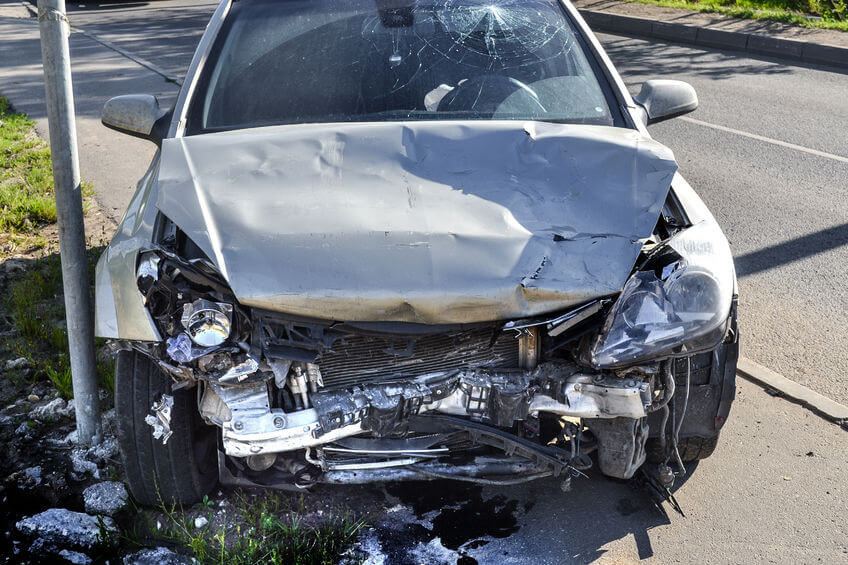
When is a Vehicle Considered Totaled In California?
Determining whether a vehicle is “totaled” after an accident can be an issue of confusion and anxiety for consumers. Even insurance professionals have a hard time parsing out the countless rules and regulations regarding the act of “totaling” a vehicle under a policy. But it doesn’t have to be so difficult. This article will hopefully help illuminate the factors that are taken into consideration when “totaling” a vehicle.
Usually, an automobile is considered to be “totaled” when the cost of repairs exceeds its actual cash value (ACV). For all intents and purposes, though, it is not always wise to repair a vehicle, even if the costs of repair is less than its ACV. A vehicle worth $5,000 requiring $4,000 in repairs may be viewed as “totaled” by an insurer despite the fact that the cost of repair is lower than its value before the crash. Vehicles like these are usually treated as total losses by insurance companies.
While the procedure differs somewhat from state to state, the insurance company will normally take ownership of the totaled vehicle (known as “salvage”) and may acquire a “salvage title” for it. After insuring the pre-loss ACV of the vehicle and forwarding the certificate of ownership, the license plates, and a fee to the Department of Motor Vehicles (DMV), the insurance company may decide to get the vehicle repaired, re-registered, and classified as a “salvaged” vehicle; or keep the “totaled” vehicle and have the value of the salvage deducted from the claim payment.
Total Loss Ratio
In figuring out whether a vehicle is totaled, insurance companies will evaluate the total loss ratio (repair expenses/ACV), also sometimes referred to simply as the damage ratio, and then compare this ratio to either internal company limits and/or those established and enforced by state law. Unlike many other states that impose a limit which must be exceeded in order for an automobile to be considered totaled, known as the Total Loss Threshold (TLT), the state of California uses a rule known as the Total Loss Formula (TLF) which goes like this:
Cost of Repair + Salvage Value > Actual Cash Value
In the event that the total of the first two quantities exceeds the ACV, the vehicle can be deemed a total loss. As an illustration, consider a damaged vehicle that has an ACV of approximately $2,500. The estimate for total repair expenses stands at $2,000, for a damage ratio of 80 percent. In California, the TLF would come into play and, if the salvage were valued at $600, the car would be totaled ($2,000 + $600 > $2,500).
Ways Auto Claim Adjusters Lowballing Your Compensation In California
If you have been injured in an auto accident, you should get full and fair compensation for your damages, including medical bills, lost wages, and pain and suffering. However, the insurance adjuster will likely attempt to lowball your settlement offer. Don’t let them deprive you of the cash you need to facilitate your recovery! The best way to beat them is to learn how they think and use their own knowledge against them. Here’s how you can do that.
When Immediate Action Is Necessary
Evidence is the keystone of any successful injury claim. Unfortunately, with the passage of time, the power of evidence fades. If you do not carefully collect and preserve important evidence, your claim will later lose credibility. Even memory is subject to fogging, so make sure to record all witness accounts as well as your own as soon as you can. If you stall, you will only give the insurance adjuster more room to frame all facts and impressions in their favor.
Insurance Adjusters Are Not Working for You
Insurance companies are multi-billion dollar industries. Like any other corporation, they operate to make profits above all else. In other words, their loyalties are to their shareholders, not their customers. Your needs are not their concern. The medical gauntlet which you have to run is not their concern. Their one primary concern is to pay as little as possible.
Even if you are a longtime customer, the adjuster will not hesitate to fight you on your claim – after all, that is their job. Therefore, don’t believe them when they say they’re on your side and act accordingly.
The Insurance Industry Uses Computer Systems to Evaluate Cases
And the calculations are usually biased. Clerks are known to key in very select, limited medical information that frames the totality of a claim in favor of the insurance company. This skewed data may include the number of physicians visited, the diagnoses and treatments, duration of care, the number of surgeries performed, and so on. Since their evaluation of a claim is based on this data, their offer range is typically far below fair and reasonable value.
Insurance Companies Don’t Expect Claimants to Challenge Them
Insurance adjusters often confront claimants with an aggressive “take it or leave it” attitude, and tell them that taking legal action will cost them more in the end than just accepting the settlement offer. They do this, knowing that many claimants are not aware of how much their claims are actually worth. However, when confronted by a knowledgeable and persistent claimant, they are more willing to negotiate a fair settlement because they want to avoid litigation, which can cost millions of dollars.
Those with Professional Legal Representation Tend to Fare Much Better
It’s true. According to a study by the Insurance Research Council, accident victims who obtain a lawyer – even after paying the contingent fee – receive over twice as much money as those who do not obtain a lawyer.
Common Bad Faith Insurance Practices In California
You depend on your insurance company to always have your back in case of an accident. You, therefore, expect them to give you fair compensation for property damages, medical bills, lost wages, and other losses depending on the specifics of your policy. But this is not always the case. When your insurance company undervalues or wrongfully denies your claim, this is known as “bad faith.” Insurance companies often take advantage of people’s ignorance of the law to get away with all kinds of unjust practices. Whether it is forcing you to accept a settlement offer that is not enough for your needs, or refusing to cover the treatment you need to get better, bad faith practices are unfortunately something you have to watch out for after an accident.
There are several practices that constitute bad faith. Here are some examples:
- Denying a claim without providing a reason
If an insurance company denies a claim after a car crash, it should definitely provide a reason. In case you made a legitimate claim to an insurance company following a crash, and your claim was denied for no reason, you might be able to file a lawsuit against the insurance company itself for bad faith.
- Not conducting sufficient investigations to a claim
The duty of fair dealing and good faith requires insurers to carry out quick and scrupulous investigations into your car accident claim. If the insurance company delayed conducting its investigations or carried out poor investigations, you might have a bad faith insurance claim against them.
- Delaying payment of a legitimate claim
Insurance companies ought to pay claims within a sensible time frame. If your claim has been approved, but your payment is being unreasonably delayed, then you have been subjected to practice in bad faith.
- Offering considerably less settlement than the worth of a claim
Insurance companies often offer “low-ball” settlements, but if they refuse to budge from this offer, they might be acting in bad faith. If you were offered a considerably less settlement amount for your claim by an insurance company, you might have a claim of bad faith.
- Making threatening statements
An insurance company should never threaten third parties or policyholders who make claims following a car accident. If an insurance company has threatened you in any way, contact our law firm right away as you will need the help of one of our car accident lawyers to file a bad faith claim.
- Misrepresenting policy language or the law
If an insurance company deliberately misrepresents the language or law in the insurance policy that is applicable to your car accident claim, you might have a legal claim of bad faith against the insurance company. Insurance companies ought to be truthful and honest in their statements about the insurance policies and the laws involved in a claim.
- Denying documentation requests
Insurance companies ought to obey reasonable documentation requests from third parties and policyholders. If you requested an insurance company to offer documentation in support of its decisions and it denied you, you might have a claim of bad faith.
When an insurer acts in bad faith to a client, it often makes a bad situation, worse. You pay insurance companies to protect you during your times of need, and the law, in turn, protects you from insurance companies that put their interests before yours. Thankfully, car accident lawyers are there to ensure that your legal rights are protected. They will help you in a court of law to get what’s legally yours.
Dealing With Insurance After A Car Accident In California
Drivers are taught to exchange information with other drivers when an accident occurs. But after a car accident, how should you deal with insurance companies? If you don’t know, that’s okay! You’re not alone. Traffic accidents are chaotic, and dealing with insurance companies can be confusing, even for the most experienced drivers.
Take a moment to collect yourself after a traffic accident, document the scene, and then take out your cellphone. There will be a few phone calls you’ll want to make.
What should you do if you’re not at-fault for an accident?
Typically, if someone hits you with their vehicle, you’ll want to call your own insurance company and avoid speaking to the other person’s insurance company, whenever possible. Of course, it’s never as simple as all that. Here are a few steps that can make the process of handling insurance companies easier.
- Call the police: Ask police officers to come down to the accident scene. You will especially want to do this if you’re not at-fault for an accident.
- Call your insurance company: When someone hits your car, you should call your own insurance company. Tell them that there’s been an accident.
- Be prepared to give your insurance company information: Once you have contacted your insurance adjuster, provide them with the information you received from the other driver(s) involved, which police department handled your case; and the location, time, and date of an accident.
- Do not contact the other driver’s insurance company: Wait until you have spoken to a lawyer about your case before speaking to the other driver’s insurance company.
Dealing with insurance can be stressful, but by speaking to the right people and avoiding others, you can set up a strong foundation for your personal injury case.
Reasons some people don’t report accidents
Some people may be worried about reporting an accident to their adjuster out of fear that their premiums will go up. It is unlikely your rates will increase after a collision if you’re not the at fault party. Insurance companies use many different factors to determine whether or not your rates will increase. Adjusters take into account the severity of your accident, such as your driving history, whether you’re the at-fault party, and the value you have to your insurance company.1
Others may be worried about this accident showing up on their record. Calling an officer to the scene can help prevent this. Every accident reported to the state’s Department of Motor Vehicles (DMV) will show up on your record, unless an officer’s report says you were not the at-fault motorist. Although this is not a guarantee, it can help. By not calling an officer, you risk the chance of an accident staying on your record anywhere from three to five years.
How should you handle the other driver’s insurance adjuster?
After an accident, the other party’s insurance company will most likely attempt to contact you. You don’t have to speak to them! In fact, it is better not to talk to the other driver’s adjuster when you have been injured in a collision, period. Instead, you should find a car accident lawyer to handle you claim. Your lawyer and your insurance adjuster should do the talking for you. This is for your own protection because insurance adjusters are trained to use manipulation and other tricks to fish out information in an attempt to hurt your claim and the amount of compensation your case may be worth.
On the off chance you do need to speak to the other driver’s adjuster, you must be careful. Keep the following in mind so you’re not tricked into giving out too much information:
- Do not discuss what condition you may be in. An adjuster may ask you how you’re doing, pretending they care about your well-being. In reality, they’re trying to find information that may point to your injuries not being as serious as you claim.
- Anything you say can be used against you. This is why you should never offer up any additional information that could be potentially construed in their favor.
- Never agree when they ask if they can record your conversation. Recordings of your conversations can be used as evidence against you! California is a “two-party” state, meaning both parties must agree to be recorded.2 An adjuster cannot legally record you if you say no.
- Avoid speculating. If you don’t know the answer to a question, say you don’t know. Never attempt to guess an answer.3
If the other company’s adjuster calls you, ask if you can have your own adjuster on the line with you or send them your adjuster’s or lawyer’s information so they can contact them. Remember: the goal is to never speak to the other company’s adjuster, if possible.
Dealing with insurance can be stressful, but you don’t have to go through it alone. Our car accident lawyer from Wilshire Law Firm will fight the other driver’s insurance company on your behalf so you can receive the maximum compensation for your claim possible. Contact us today and schedule your free consultation at 1-866-344-0588. Disclaimer: The information provided is not meant to serve as legal advice, nor does it constitute a guarantee or prediction regarding the outcome of your legal matter.
Intentional Acts Vs. Illegal Acts In California
An intentional act is when someone “consciously desires” the probable result of an action they commit. A person who acts intentionally is “substantially certain” that their actions will result in the desired outcome.
In liability law, when an intentional act is potentially illegal, they’re also referred to as intentional torts. A tort is a wrongful act or infringement of a right (outside of contract) that leads to a civil legal liability. In other words, a tort is when someone illegally infringes on another person’s civil liberties.
How do insurance companies treat intentional car accidents?
No matter what type of insurance you have, your policy will have a clause that excludes coverage for intentional and fraudulent acts.
Sometimes, it’s down to the court to decide if your act was intentional or not. When a court deems that an act committed by an insured is intentional, insurance coverage is denied.
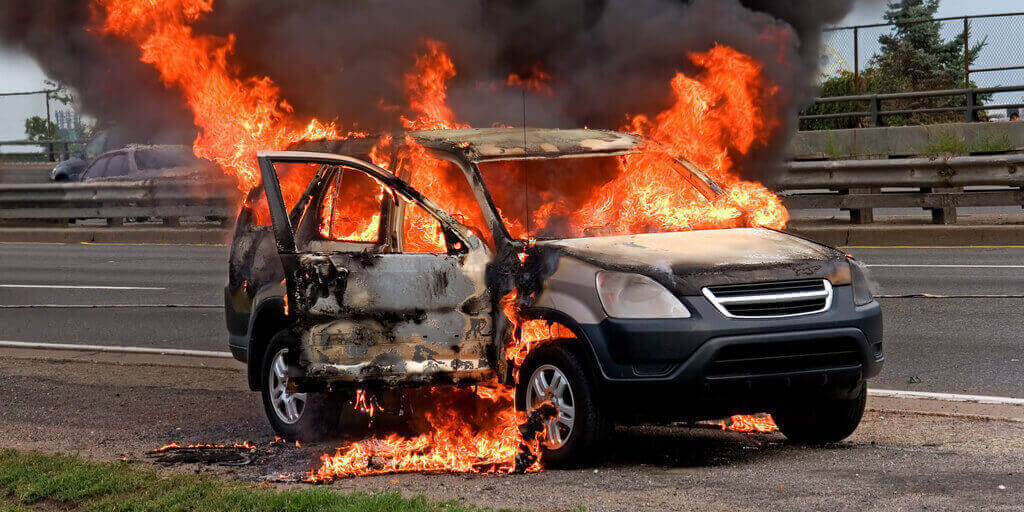
If you set your car on fire, don’t expect the insurance company to pay for it! That’s fraud.
In Wilshire Law Firm’s over 10 years of practice, in which we’ve recovered over $350 million in damages for our clients, we’ve seen many intentional acts lead to car accidents.
People intentionally hit another car, pedestrian, or biker with their car, because of:
- Vendetta
- Road rage
- Many other reasons
If you or someone you know was the victim of an intentional act motor vehicle accident or any other type of intentional act that caused harm or damage to your body or personal property, you could be entitled to compensation.
However, if you do not have uninsured motorist insurance, you could be looking at an uphill battle in recovering damages for your losses.
How Much Auto Insurance Coverage Is Enough?
Protecting yourself on the road not only means adequately maintaining your car and putting on a seatbelt, but it also means having sufficient coverage in all the required areas. Most states have minimum car insurance requirements in order to protect their drivers better. Driving without insurance in such states could have severe consequences for the driver such as suspension of their driver’s license, fines, and tickets.
Nearly all states require you to purchase a minimum amount of liability coverage. There are, however, high chances that you might need more liability insurance than required by the state because car accidents often cost more than these minimum limits. If you are found to be legally liable for bills that exceed what is covered by your insurance, you will be forced to cover the difference from your own pocket. Such costs could destabilize your finances!
Even though the minimum limits serve to protect the drivers by making sure that everyone has insurance coverage, we have seen that there are numerous circumstances where they are simply not enough. For you to be protected as much as possible in case of an accident, below are some points for every driver to consider before buying car insurance:
- Liability: Just as a general rule, every driver should carry enough liability coverage to protect their assets. In case you are found at fault in a crash, and your liability limits are not enough to cover the injured individual’s hospital expenses, they might come after your assets in order to cover the difference. If you have a high income, are a home owner, or own any other assets, you should definitely consider increased liability coverage levels. You could consult with your car accident lawyer on the amount of liability coverage to purchase.
- Comprehensive and collision: Comprehensive and collision coverage is required if you are still paying a car on loan or are driving a leased car. Comprehensive coverage covers all kinds of non-accident damages to your car – for instance, hail and fire – while collision coverage protects you in case of a crash involving another car or hitting an inanimate object.
- Uninsured motorist: Even though a lot of states necessitate minimum levels of car insurance, this doesn’t imply that there are no uninsured drivers on the roads. You will be surprised to know just how many uninsured drivers use our roads. Even though it might not be compulsory, it is wise for you to have uninsured motorist coverage. This type of insurance will have you covered in the event that you get involved in a car accident with an at-fault driver who doesn’t have insurance or doesn’t have the sufficient levels of insurance to settle the injuries or damages caused. Your uninsured motorist coverage ought to at least match the limits of your liability.
As a responsible driver, you should have car insurance coverage that is either equal to or more than the minimum limits set by your state. Auto insurance coverage can be very confusing and complicated. Sadly, the downsides of insufficient automobile coverage only become clear after a car accident results in injuries to the drivers themselves or the people they love. By the time this is happening, it is too late for them to make sure that they have the enough coverage they need. If you or your loved one has recently been involved in an accident and would like to have
Types Of Car Insurance Coverage Explained
Thinking about which insurance coverage to get can be overwhelming. There are dozens of insurance companies, legislations, and types of insurance coverage that you need to take into account before making your decision. It is for these reasons that we decided to write this article: to help you know the basic types of insurance policies out there. To get that information, we talked to our car accident lawyers and insurance experts. This is what we found out.
- Underinsured or uninsured motorists insurance
This coverage will cover your medical expenses if you are involved in an accident in which the at-fault driver does not have insurance or their coverage is not enough to cover the damages they have caused you. This kind of insurance will also get you compensated in case you become the victim of a hit-and-run accident.
- Med-Pay Insurance
Med-Pay covers medical expenses, if you’ve been in a car accident, regardless of who is at fault. Plus, medical payments insurance may cover funeral expenses, injuries you sustain as a pedestrian or bicyclist after a car hits you; as well, pedestrian or bicyclists injuries and required dental care. However, benefits and restrictions of medical payments coverage will vary between auto insurance companies. It’s important to speak with an insurance agent to completely understand the details of medical payments coverage at each company.
- Liability insurance
In case you are involved in a car accident, and the investigation establishes that you are responsible for the accident, your insurer will pay for property damages and any medical expenses incurred by any third party as a result of the accident. In some cases, even the legal fees for car accident lawyers will be covered in case you are sued in a court of law. Almost all states require at least minimum liability insurance coverage.
- Collision insurance
In case you get involved in a car crash, collision coverage will pay for the cost of repairs to your car. Collision coverage is especially important if you have just bought a new car or if your car is expensive, as it will help in getting you back to where you were before the accident. In case the value of repairs is more costly than the value of your car, collision coverage will get you compensation equal to the value of your totaled car.
- Comprehensive aka OTC (Other-than-collision) coverage
This type of insurance covers any damage to your vehicle caused by any occurrence other than a collision. For instance, if your vehicle gets stolen or gets damaged in a fire or earthquake, comprehensive coverage will get you compensated for the damages to your vehicle. If you hit a deer or a hailstorm damages your car, you will also get compensated. Comprehensive coverage is, however, costly and usually unnecessary especially if you can easily replace your vehicle. Also, most of the things you are getting coverage against have a very low likelihood of happening. For example, it is highly unlikely that a tree branch will fall on your car, especially if you live in a desert.
As you can see, there are several basic types of insurance coverage. Some are required by law, and some are not. Some are crucial and others you could possibly do without.
If you or a loved one has been injured in an accident, contact us and we will assign one of our skilled and experienced car accident lawyers to help you with your case.
How Car Insurance Companies Mislead Customers
Dennis Haysbert struts onto your screen and tells you “you’re in good hands”. Flo’s energy inspires confidence in you. A gecko with a British accent disarms you into trusting him. Advertising, from celebrity endorsements to original mascots, is just the tip of the iceberg of tactics that insurance companies use to convince their clients they have their best interests at heart.
Ultimately, though, it’s not personal—it’s business. Insurance companies, whether they offer coverage for health, life, house, fire, car, etc, are selling peace of mind. Consumers pay a monthly premium in order to free themselves from the worry of what to do in the case of a catastrophic event. However, what’s best for insurance companies is for those catastrophes to never happen, so when they do happen, companies do everything they can to pinch every penny.
The best way to protect yourself from the money-saving techniques these companies use is to hire a lawyer. Nothing, not even the list of tactics that follows, is a substitute for the legal expertise and a caring human mind.
Common Tactics Car Insurance Companies Use
After you file your claim, insurance companies will sometimes attempt to delay or get out of your claim. Because they don’t want to pay out any money as for them any payout is a loss, they might attempt to redirect the blame for the accident to you or a third party so as to not be responsible for paying you. Similarly, they may delay processing your claim in the hope that you’ll drop it, forget about it, or accept a low settlement. You may have to call them numerous times to get in touch with an agent or adjuster who can create movement with your case.
Similarly, insurance companies may minimize your medical condition or ask for your medical records to gather information to lower the monetary value of your claim. The only person who should ever speak to you about the status of your medical condition and treatment is a medical professional. By appearing like a friend or an ally, however, insurance adjusters may position themselves in a way to suggest that your injuries are less severe to discourage you from pursuing more costly treatment. Allowing this approach to influence you can negatively impact your health and finances. Additionally, after positioning themselves as allies, adjusters may ask for copies of your medical records under the guise of helping you. What is more likely is that they’ll be looking for loopholes that will lower the cost of your claim based on the notes from your history, examination, and treatment.
Worse yet, companies may get more aggressive by demanding a statement from you, coercing you into admitting fault, or offering you money to sign a release. These tactics are part of companies utilizing a pressure-based approach. When you call and report an accident, they may say that it is important to get your version of events on record. They may even ask if they can capture an audio recording of your statement. You do not have to agree to the audio recording or even say anything if you do not want to. In fact, remaining silent gives them fewer of your words that they can use to show that you admitted fault even when you didn’t. If an adjuster becomes especially aggressive, he or she may offer you money to sign a release which would end all of the company’s involvement in the situation, including potential future medical treatment.
Most importantly, do not listen to companies claiming that you do not need a lawyer. They do not want you to retain representation because your doing so makes their job more difficult. With a talented and compassionate attorney on your side, the likelihood of you receiving the settlement you deserve increases—and that kind of settlement is what insurance companies want to avoid.
Useful Tips for Talking to Your Insurance Adjuster
You’ve just been in a car accident. Whether it was a bad wreck or a silly fender bender, the upcoming hours and days can make or break your family’s financial future.
These situations are never fun, and, in many cases, they’re extremely dangerous.
The scenarios are endless:
- The accident may have been your fault
- It may not have been your fault
- You may be injured
- You may not be injured
You followed the proper accident aftermath protocol:
- Exchanged insurance information
- Informed your insurance company
- Checked to see that everyone was OKAY
- Talked to the police
- Hired a lawyer…
Or, maybe, you didn’t do any of that because you were too busy, picking up the pieces.
Literally and figuratively.
Whatever the case may be, there is one thing you can be sure of: you’re going to get a call from an insurance adjuster (if you haven’t already).
Here’s what adjusters do before they call you.
It is important that you know the process by which insurance adjusters assess your claim.
- They examine your vehicle to assess the damage.
- They investigate the liability to see who is at fault.
- If they accept responsibility, they study your injuries to assess the damages, to see how minor or major they are.
- They put a monetary value on your claim.
If you were seriously injured, but never saw a doctor or went to the hospital, meaning there are no medical bills, you could be looking at a lowball offer.
To avoid this situation, it’s important you hire a personal injury attorney right away:
- We’ll help you find medical treatment
- You won’t have to pay any medical bills up front
- We won’t let insurance companies bully you
- We know the law, and we’re experts
There are two types of insurance adjusters
- Level 1: Non-attorney-represented adjusters with relatively low experience, maybe two or three years at most.
- Level 2: Attorney-represented adjusters with more experience.
Insurance companies assign Level 2 adjusters to your case when they get a letter disclosing you’ve obtained attorney representation.
Adjusters are not necessarily out to get you, but they are interested in saving as much money for their employer as humanly possible.
That means money coming out of your pocket.
Just like court, anything you say to an insurance adjuster can and will be used against you…
Insurance companies need a recorded statement to finalize their liability decision against you. They already have insurance statement, and police report. They want to see if you say anything wrong so they can use it against you and believe us, they will!
…yet another reason why you should obtain an experienced attorney, and leave these calls up to us.
Do not negotiate with insurance adjusters
If you are the victim of a car accident, the first thing you need to do is hire an attorney before you talk to an adjuster. And guess what? With Wilshire Law Firm’s car accident lawyers, our consultations are free!
In case you do find yourself on a call with an adjuster, here are some more tips for what to do and what not to do:
- Never admit fault… ever
- Don’t discuss medicals at all
- Withhold private details
- Do not agree to a settlement
- Do not sign or accept anything
- If you feel rushed, make it known
- The adjuster is not your friend
- Be nice, polite, and respectful always
Remember, adjusters are paid to save the insurance company’s money, not yours. They talk on the phone all day with people who are down on their luck and take advantage of those who cannot negotiate for themselves. You’re just another file to them, and their number one job is to nickel and dime you and your family until you have nothing left.
Adjusters will try to downgrade your settlement
If an adjuster asks:
“Even though the other driver hit you, was there any moment when you thought you could have avoided the crash?”
Your answer is always: no.
This is known as comparative liability. At any point, if you are found at even just 1% fault, you are responsible for that 1% of the claim. That 1% is compared to the policy limit, and can easily turn into millions.
This is just one example of many, many schemes they will use to downgrade your settlement before making you an offer.
You are better off saying absolutely nothing (pleading the fifth), calling Wilshire Law Firm, and letting us negotiate for you.
Our team has the best accident and personal injury lawyers in California for a reason: we fight for families who are bullied by big business insurance companies into leaving money on the table every day, and we win.
It’s the reason we’ve accumulated over $350 million in settlements and case resolutions in just 10 years of practice.
We’re the guys the insurance companies are afraid of – that’s why they try to rush you into settling early.
Never, ever settle with an insurance adjuster
No settlement is so simple that you need to agree with just one phone call.
Even two or three phones calls is usually not enough.
Especially when your family’s future is at stake.
But, that’s exactly what the adjuster will try to do: Give you an offer that sounds like a lot of money, but it’s chump change compared to what your family truly deserves for their loss of property, health, or life.
Many factors go into agreeing on a fair and just case resolution. One of those factors is known as unforeseeable costs. You didn’t expect to get into an accident. How can they possibly tell you how much you are owed? How could your insurance adjuster possibly account for things like:
- Medical bills (past and future)
- Physical rehabilitation
- Lost wages
- Loss of future wages
- Pain and suffering
- Mental anguish
- Emotional distress
- Loss of companion
- So much more!
These situations are not laughing matters. What is a laughing matter, however, is when they tell you not to get a lawyer.
Lives are at stake, and it is very important that you approach calls with insurance adjusters with proper care and preparation.
Get Help with you California Car Accident Insurance Now!
For answers to all of your questions about auto accidents, insurance procedures, and coverage, contact the experienced personal injury attorneys at Wilshire Law Firm. As vehicle crash case specialists, we can provide you with a comprehensive understanding of your specific accident case and your legal options. After talking with us, you will know where you stand. So call us today at (866) 344-0588 to receive a FREE consultation. It may be the best call you ever make.
What’s the difference between an intentional act and an illegal act?
Liability coverage excludes intentional acts, but what if you caused damage to someone else while you were doing something illegal?
Interestingly, insurance law states that, even though you were acting in an illegal manner, you weren’t acting “intentionally” to commit a tort against another person or party.
Take driving under the influence, for example.
If you’re driving under the influence of drugs and/or alcohol, obviously, you’re acting in an illegal manner, and you should stop driving immediately.
However, if you cause an accident that leads to bodily damage and/or property damage, your insurance company will, most likely, pay for the claim.
Surprised?
If you light your car on fire, that counts as an intentional act, but if you get into an accident while driving under the influence, you didn’t, technically, intentional act.
Hence the term “involuntary” manslaughter.
Remember, an intentional act is when someone “consciously desires” the probable result of an action they commit.
Instead of filming, you should call the police if you see a drunk driver on the road!
This doesn’t mean drunk driving accident culprits aren’t at fault for wrongful deaths they cause with their egregious mistakes.
The insurance company will pay up to the policy limits, for damages. As far as committing a crime is concerned, DUI wrongdoers are on their own!
If you kill someone while driving drunk, you will most likely be charged with involuntary manslaughter, and no insurance company will help you.
Also, you can be sure to expect insurance rates to go through the roof for the rest of your driving days; plus, ginormous fines and lawyer fees.
So good luck with that!
Sources and further reading:
- California Department of Insurance
- Justice.org – How Insurance Companies Deny, Delay, Confuse and Refuse
- Insure.com – Why your insurance company has to pay for your illegal acts
Fill out our online form or call us at (866) 877-4189.




